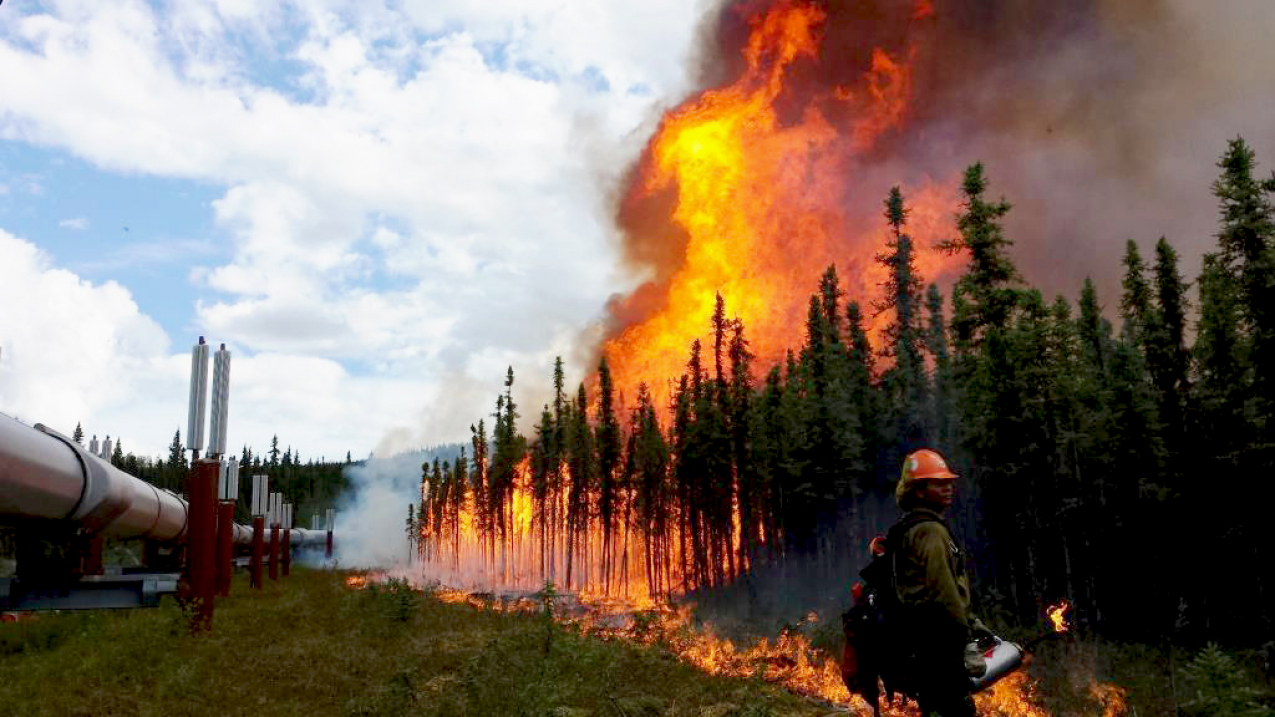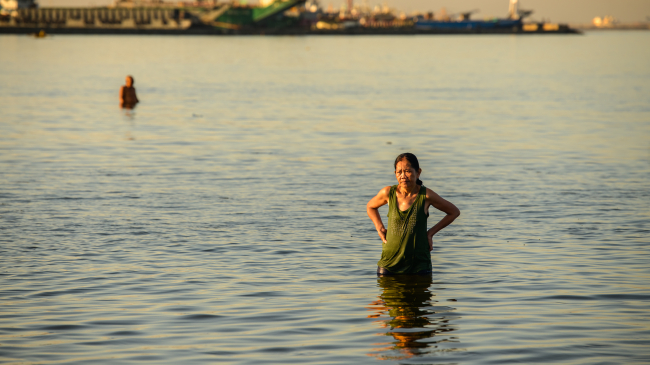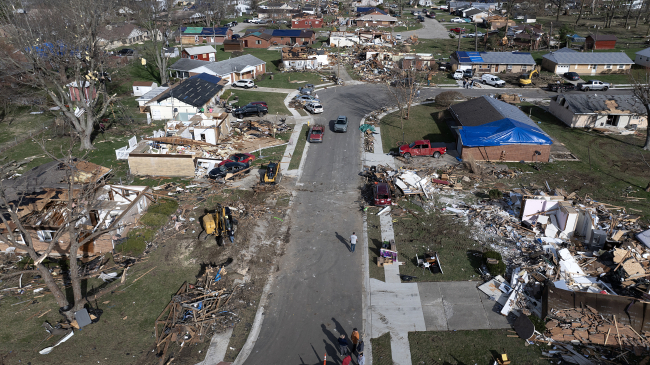Report identifies how long-term climate change affected extreme weather events in 2015

The 2015 Alaska fire season burned the second largest number of acres since records began in 1940. Human-induced climate change may have increased the risk of a fire season of this severity by 34-60%. (Image credit: Philip Spor)
Extreme weather can claim lives, damage economies and grab headlines. Though we generally understand the underlying physical causes of extreme events, our scientific understanding about how they may be influenced by a changing climate is not as clear.
NOAA and its partners will discuss the results from the fifth annual "Explaining Extreme Events from a Climate Perspective in 2015" report at a press conference on Thursday, Dec. 15 at 2:30 p.m. Eastern Time / 11:30 a.m., Pacific Time (U.S.)., hosted by the American Geophysical Union (AGU) at its Annual Fall Meeting in San Francisco. The report will be published that day as a special edition of the Bulletin of the American Meteorological Society.
The speakers will examine the natural and human causes of individual extreme events in 2015 from around the world, look back at the progress made in the past five years and explore the future of extreme event attribution.
Reporters are invited to attend the press conference in person at the Moscone Conference Center, Moscone West, Room 3000 in or may participate remotely via web streaming offered by the American Geophysical Union.
Events assessed for 2015, include:
- Extreme heat events, including heat waves in Europe, India, Pakistan, China, Indonesia, Japan and Australia
- Heavy daily precipitation in December over Chennai, India
- The late onset of Nigeria's spring rainy season
- Outbreaks of extreme cold in the eastern US and Canada
- Record winter sunshine in the United Kingdom
- Florida's "sunny day" flood in September
- Extreme May rainfall in southeast China
- Extreme drought in southwestern Canada
- Alaska's intense wildfire season
- Record-low Arctic sea ice in March
- The record average global temperature in 2015
WHAT
- Press Conference held at the AGU's annual fall meeting in San Francisco, California.
WHEN
- Thursday, December 15, 2:30- 3:30 p.m. Eastern Time (11:30 a.m. -12:30 p.m.) Pacific Time (U.S.)
LOCATION
- AGU Fall Meeting, Moscone Center, 747 Howard Street, Press Conference Room (Room 3000, Moscone West, Level 3), San Francisco, CA 94103
WHO
- Stephanie C. Herring, NOAA National Centers for Environmental Information, Boulder, Colorado, U.S.A.
- Martin P. Hoerling, NOAA, Earth Systems Research Laboratory, Physical Science Division, Boulder, Colorado, U.S.A.
- Friederike Otto, University of Oxford, Centre for the Environment, Environmental Change, Oxford, United Kingdom
- Jeff Rosenfeld, American Meteorological Society, Boston, Massachusetts, U.S.A.
LIVE STREAM VIA WEB
- All AGU press conferences may be accessed live via the internet. To learn how to participate in the press conference, see http://fallmeeting.agu.
org/2016/media-center/ offsite link.webstreaming/ - At the time of the press conference, go to the AGU press conferences web page offsite link.
- All AGU press conferences will be archived on their YouTube channel
ADDITIONAL INFORMATION (available on Dec. 15 at 2:30 PM Eastern Time (U.S.)
- BAMS Explaining Extreme Event of 2015 from a Climate Perspective report offsite link
- Press release
- NOAA Climate Portal
MEDIA CONTACT:



